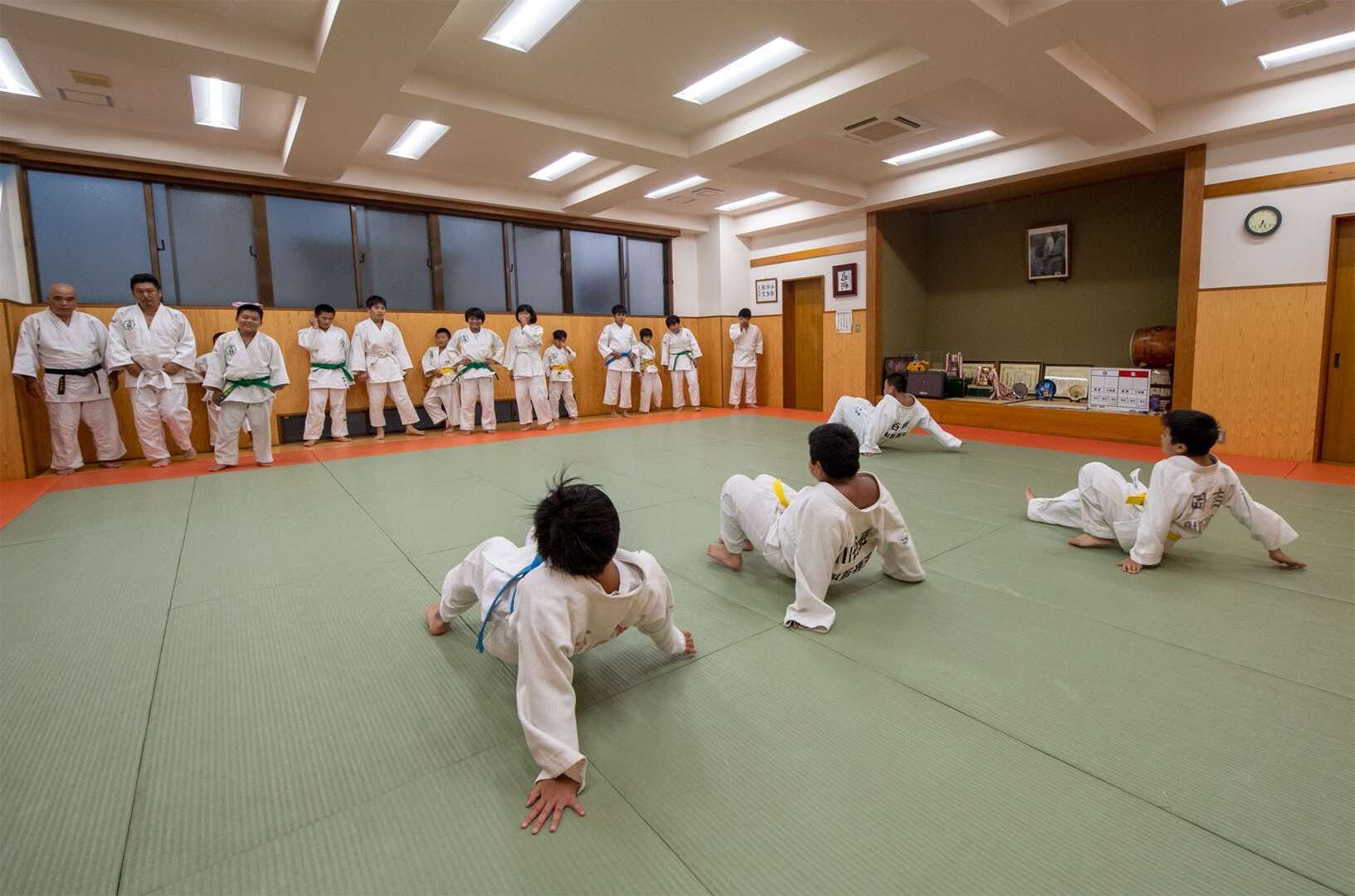
What is a dojo? A dojo is more than just a place for martial arts training; it's a sanctuary for self-improvement and spiritual growth. Originating from Japan, the term combines "dō" (the way) and "jō" (place), translating to "the place of the way." Traditionally, dojos are associated with martial arts like karate, judo, and aikido. However, the concept has evolved to include modern applications such as language learning, meditation, and even corporate training. Whether it's a karate dojo or a corporate dojo, the core principles of discipline, community, and continuous learning remain essential.
Key Takeaways:
- Dojos are more than just martial arts spaces; they promote personal growth, language learning, and business training. They have a rich history and continue to evolve to meet modern needs.
- Market Dojo, a leading corporate dojo, has made a significant impact in the procurement industry. Its founders' diverse backgrounds contribute to its innovative solutions, and high customer satisfaction reflects its effectiveness.
What is a Dojo?
A dojo is more than just a place for martial arts training. It is a space dedicated to personal growth, discipline, and spiritual development. Let's explore some fascinating facts about dojos.
-
The term "dojo" (道場) comes from Japanese words "dō" (道) meaning "the way" and "jō" (場) meaning "a place." Together, they mean "the place of the way."
-
Traditionally, dojos are halls where martial arts like karate, judo, and aikido are practiced.
-
Modern dojos have expanded beyond martial arts to include language learning, meditation, and even business training.
Historical and Cultural Significance
Understanding the historical and cultural roots of dojos helps appreciate their importance.
-
Karate dojos have a structured training process: Shu (following instructions), Ha (applying techniques), and Ri (spontaneous execution).
-
USA Goju Ryu, founded by Peter Urban, is a unique karate style that diverged from traditional Goju Ryu.
-
A successful dojo is not just about numbers; it's about the quality of teaching and a supportive learning environment.
Modern Adaptations
Dojos have evolved to fit modern needs, including corporate and educational settings.
-
Corporate dojos, like Market Dojo, provide immersive learning and innovation spaces for businesses.
-
Market Dojo has facilitated numerous tenders, including a Japanese auction for a Premier League football club training ground.
-
Market Dojo’s bidding process follows Benford’s Law, a statistical principle used to detect fraud.
Community and Success Stories
Dojos often foster a strong sense of community and personal achievement.
-
Market Dojo’s support manager, Chris, won a half-time challenge at Gloucester.
-
The co-founders of Market Dojo, Alun Rafique, Nick Drewe, and Nicholas Martin, all studied at Bristol University.
-
Market Dojo’s platform hosts a wide range of suppliers, with half invited to multiple events.
Language Learning Dojos
Language learning dojos offer a unique way to immerse oneself in a new language and culture.
-
We Languages offers bilingual online dojo sessions focused on Japanese culture and language.
-
These sessions are free for We Languages students and cover topics like the Japanese tea ceremony.
-
Preparing for the Japanese Language Proficiency Test (JLPT) can be done in a supportive dojo environment.
Creating Your Own Dojo
You can create a personalized dojo space at home for personal growth and self-realization.
-
Practical tips include dedicating a specific area for training and incorporating elements of Japanese culture.
-
Meditation is often an integral part of dojo environments, helping improve concentration and well-being.
-
Corporate dojos foster innovation and creativity within companies, leading to increased productivity.
Economic and Survival Factors
The economic viability of a dojo is crucial for its survival and success.
-
Instructors must balance teaching and learning with financial constraints to sustain a dojo.
-
A successful instructor is often more important than a successful dojo, focusing on lifelong learning.
-
Hanshi Kenichi Sawai Sensei, despite having no dojo or students, was a remarkable teacher who inspired many.
Unique Dojo Stories
Every dojo has its unique story and legacy, contributing to its distinct identity.
-
USA Goju Ryu, despite its controversies, has maintained a unique identity within the karate community.
-
Some USA Goju Ryu schools have incorporated techniques from other martial arts, leading to quality control issues.
-
Creating a personalized dojo space at home can be a rewarding experience with practical tips.
The Role of Meditation
Meditation plays a significant role in many dojo environments, promoting holistic development.
-
Meditation helps practitioners focus their minds and enhance overall well-being.
-
Modern dojos often incorporate meditation sessions into their training programs.
-
Corporate dojos provide immersive learning experiences, helping employees develop new skills.
Market Dojo’s Impact
Market Dojo has significantly impacted the procurement industry with its efficient platform.
-
Their on-demand training model allows companies to try out tools at low risk.
-
Market Dojo’s adherence to Benford’s Law ensures transparency and integrity in procurement processes.
-
The community spirit within a dojo is often reflected in the achievements of its members.
Founders and Contributions
The diverse backgrounds of Market Dojo’s founders have contributed to its innovative solutions.
-
Alun Rafique’s experience in Aeronautical Engineering, Nick Drewe’s Mechanical Engineering background, and Nicholas Martin’s Physics studies have been invaluable.
-
Market Dojo’s platform engages suppliers through various events, ensuring active involvement.
-
Users create an average of 26 events each, with the most adventurous user having created 3,678 events.
Customer Satisfaction
High customer satisfaction is a testament to the effectiveness of Market Dojo’s platform.
-
Market Dojo has received over 50 reviews on Capterra, with an average rating of 4.6/5.
-
Over the past decade, Market Dojo has expanded its offices five times, reflecting its growth.
-
Market Dojo has been involved in various charitable activities, demonstrating its commitment to corporate social responsibility.
Language Learning Dojos: We Languages
We Languages offers engaging and thematic dojo sessions for language learners.
-
These sessions encourage students to use Japanese while learning interesting cultural facts.
-
Topics covered include the Japanese tea ceremony and preparation for the JLPT exam.
-
Creating a personalized dojo space at home can be tailored to specific needs and goals.
Meditation and Corporate Dojos
Meditation and corporate dojos play a crucial role in modern learning environments.
-
Meditation helps improve concentration and overall well-being in dojo settings.
-
Corporate dojos foster innovation and creativity, leading to better decision-making.
-
Market Dojo’s platform has significantly impacted the procurement industry.
Community Spirit and Achievements
The community spirit within a dojo often leads to unexpected successes.
-
Market Dojo’s support manager, Chris, won a half-time challenge at Gloucester.
-
The co-founders of Market Dojo brought diverse backgrounds to the company, contributing to its success.
-
Market Dojo’s platform engages suppliers through various events, ensuring active involvement.
Customer Reviews and Workspace Expansion
High customer satisfaction and workspace expansion reflect Market Dojo’s growth.
-
Market Dojo has received over 50 reviews on Capterra, with an average rating of 4.6/5.
-
Over the past decade, Market Dojo has expanded its offices five times.
-
Market Dojo has been involved in various charitable activities, demonstrating its commitment to corporate social responsibility.
International Center Budo and Doctor M. Sakati
While not directly related to the concept of a dojo, the International Center Budo and its teacher, Doctor M. Sakati, are worth mentioning.
-
The last update on their website was in 2011, indicating a need for further information.
-
The concept of a dojo extends beyond traditional martial arts, encompassing a broader philosophy of self-realization and spiritual growth.
The Essence of Dojo
A dojo isn't just a place for martial arts. It's a space for self-improvement, discipline, and community. From traditional karate dojos to modern corporate dojos, the core principles remain the same. Whether you're practicing karate, learning Japanese, or innovating in a business setting, a dojo provides a structured environment for growth. The concept has evolved, but its heart stays true to fostering personal development and spiritual growth. Market Dojo and We Languages show how adaptable and effective this idea can be in today's world. Creating your own dojo, even at home, can be a rewarding experience. It’s about dedication, focus, and continuous learning. So, whether you're kicking a bag or brainstorming a new project, remember the dojo's essence: a place to find your way.
Frequently Asked Questions
Was this page helpful?
Our commitment to delivering trustworthy and engaging content is at the heart of what we do. Each fact on our site is contributed by real users like you, bringing a wealth of diverse insights and information. To ensure the highest standards of accuracy and reliability, our dedicated editors meticulously review each submission. This process guarantees that the facts we share are not only fascinating but also credible. Trust in our commitment to quality and authenticity as you explore and learn with us.


